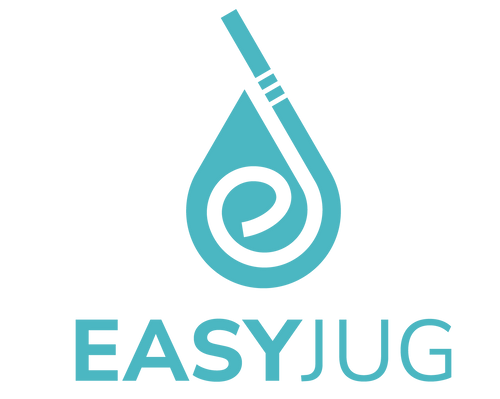Introduction
If you're navigating the world of breastfeeding, you've probably found yourself wondering, "Can you breastfeed too much?" It's a common concern for many parents, especially those in the early weeks of their breastfeeding journey. We'll provide some insights, dispel myths, and offer guidance on this important topic so that you can breastfeed with confidence.
Understanding Your Baby's Needs
Breastfed Babies and Frequent Feeding
In the early days, newborns often seem insatiable, and that's completely normal. Babies have growth spurts, and their tiny stomachs mean they need frequent feeding to get enough milk. Responsive feeding is the best way to meet your baby's needs and support healthy development.
Responsive feeding
This is a fundamental aspect of nurturing newborn babies through breastfeeding. It involves attuning to your baby's cues and responding promptly to their needs during feeding sessions. Whether you're bottle feeding or breastfeeding, understanding your baby's unique feeding patterns is crucial. It's about recognizing when your baby is ready for the next feeding, switching to the second breast, or gauging if they are satisfied with the amount of milk received.
Responsive feeding supports a baby's growth, helping them maintain a healthy birth weight and achieve appropriate weight gain in the early months of life. This practice also aids in preventing issues such as lactose overload or overfeeding, ensuring that your baby gets just the right amount of milk they need. Whether you consult with a health care provider, lactation specialist, or your baby's pediatrician, responsive feeding aligns with medical advice and promotes optimal brain development. By being attuned to your baby's cues, you create a nurturing environment that contributes to the overall well-being of both you and your breastfed infant.
Cluster Feeding and Growth Spurts
You may notice your baby having longer feeding sessions during growth spurts. This cluster feeding is the baby's way of signaling to your body to increase milk production. Don't worry; it's not a sign of overfeeding. Keep lot's of snacks and water available as you'll be extra hungry and thirsty during these longer sessions.
Addressing Concerns
Oversupply of Milk
While some moms worry about providing too much milk, oversupply is not as common as low milk supply. However, it's crucial to recognize the symptoms of oversupply, such as a fast flow, gassiness, and green, frothy stools.
If you find yourself with an oversupply of milk, there are several beneficial steps you can take to manage this abundance while supporting your breastfeeding journey. One solution we love is the innovative freeze-drying service offered by Leche. By pumping your excess milk and having it freeze-dried, you transform it into powdered form, making it incredibly convenient for travel with your baby. This process not only ensures a longer shelf life of up to three years but also provides a versatile and easily transportable alternative to liquid breast milk. This can be particularly helpful if you're on the go or faced with situations where breastfeeding might be challenging. Ultimately, this proactive approach allows you to enjoy the benefits of breastfeeding while ensuring that your oversupply becomes a manageable and beneficial part of your parenting experience.
Low Milk Supply
On the flip side, some moms may worry about a low milk supply. If your baby feeds well, is gaining weight within the normal range, and has enough wet diapers, it's likely you're producing plenty of milk.
Low milk supply can be a concern for breastfeeding moms, and recognizing the symptoms is crucial for addressing the issue. If your baby appears unsatisfied after feeds, is not gaining weight within the normal range for their months of age, or seems fussy at the breast, these could be signs of insufficient milk supply.
Difficulty latching or a baby frequently pulling away from the breast may also indicate a struggle with getting enough milk. Additionally, if your baby's mouth does not seem adequately filled during feeds or they consistently take a small amount of milk, it's essential to pay attention. Lastly, if you don't drink enough water, it may also effect your milk production since breastmilk is 80-90% water.
Using an electric breast pump between feeds, particularly during block feeding, can help stimulate milk production. If, despite these efforts, you notice a reduced milk flow or a general decrease in the fat content of your milk, it's advisable to seek support from a lactation consultant, health visitor, or your child health nurse.
Remember, addressing low milk supply involves a personalized approach, and seeking further information and support, including contacting the national breastfeeding helpline, can be a helpful step in optimizing your breastfeeding journey.

Early Feeding Cues and Responsive Feeding
Recognizing Early Feeding Cues
Understanding your baby's cues is essential. Learn to recognize the signs of hunger early on, like rooting, sucking on hands, or turning towards the breast. Responding promptly supports a healthy breastfeeding relationship.
Exclusive Breastfeeding and the First Month
The World Health Organization recommends exclusive breastfeeding for the first six months. However, it's essential to introduce solid foods around six months while continuing to breastfeed for up to two years or more.
Seeking Support and Professional Guidance
Lactation Consultants and Healthcare Providers
If you ever feel uncertain or have concerns, reach out to a lactation consultant or your healthcare provider. They can offer personalized advice based on your baby's specific needs and your individual circumstances.
Support Groups and Helplines
Joining support groups or reaching out to national breastfeeding helplines can provide additional guidance and reassurance. Connecting with other new parents can be incredibly beneficial. Check out support groups like La Leche League, they've been supporting families is resolving breastfeeding problems for decades.
EasyJug: Empowering Hydration for New Mothers
Staying hydrated is paramount for new mothers, especially those navigating the delicate balance of caring for a breastfed baby. EasyJug, with its innovative 47-inch long straw and capacious 2.2-liter bottle, empowers moms to prioritize their hydration without interrupting precious moments with their newborns.
For new mothers who may find themselves engrossed in breastfeeding or juggling the demands of pumping, this revolutionary design allows them to quench their thirst effortlessly.
The bottle's ample capacity ensures an uninterrupted flow of water, and the extended straw minimizes the need for awkward positioning or fumbling for a sip.
Hydration is not just about personal comfort; it's vital for maintaining optimal milk production. EasyJug understands the challenges new mothers face, providing a practical solution that seamlessly integrates into their routines. With EasyJug, you can prioritize your health and hydration, contributing to both your well-being and your baby's development.
Conclusion
In conclusion, the question of whether you can breastfeed too much is best answered by listening to your baby's cues and responding to their needs. Every baby is unique, and there's no one-size-fits-all answer. Trust yourself, seek support when needed, and enjoy the bonding experience that breastfeeding brings to both you and your little one.
Community & Support
We know the beautiful chaos of motherhood – the endless feedings, diaper changes, and sleepless nights. Amidst all this love and care, it's easy to forget about your own well-being. That's where EasyJug steps in – to make hydration a breeze for you.
Join our community of nurturing mothers and prioritize your health with EasyJug. Sign up now to receive exclusive tips on staying hydrated during your breastfeeding journey, along with special offers just for you.
Because when you take care of yourself, you can give your little one the best version of you. Let's hydrate together and thrive as moms!





